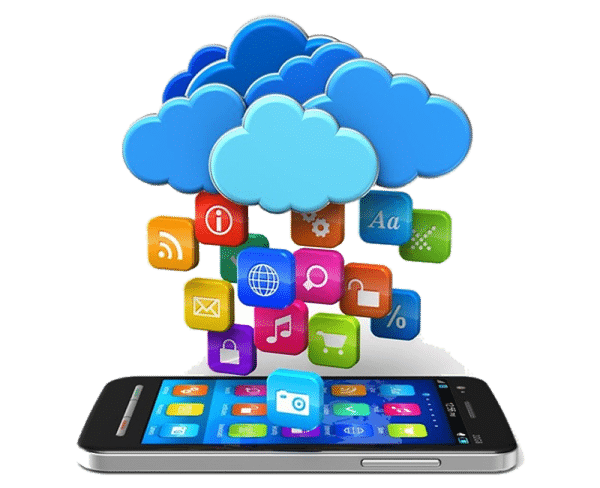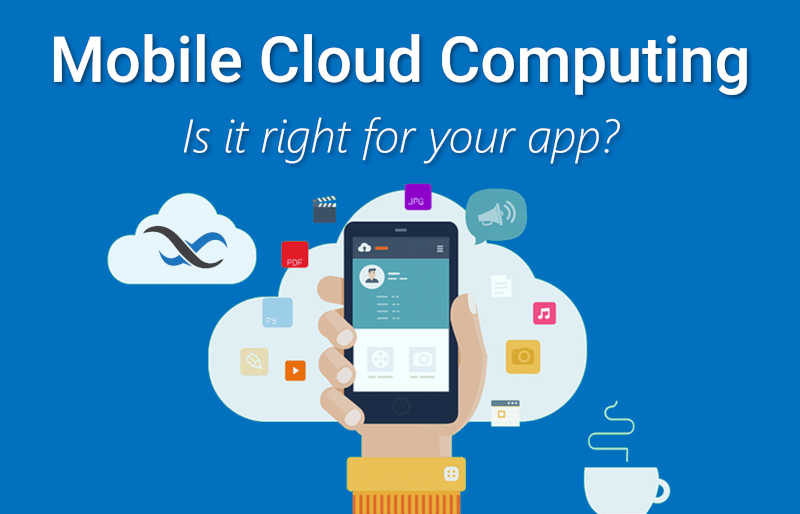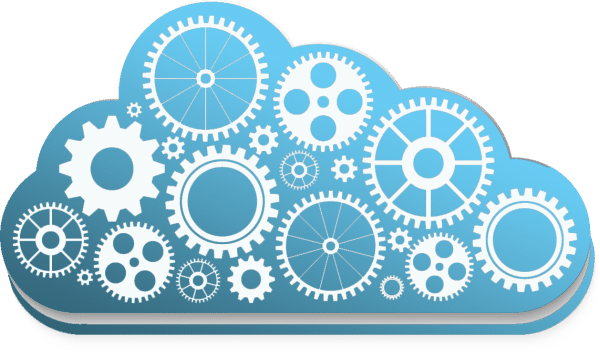Mobile cloud computing examples and applications
There are a number of different mobile cloud applications and services that are available to mobile users. Below, we discuss some of the most popular applications of MCC as well as mobile cloud apps that utilize these functions.

Cloud file and data storage
Cloud storage services, such as Dropbox and Google Drive, allow users to store their files in the cloud and access them from any device with an Internet connection.
Cloud-based productivity apps
Cloud-based productivity apps, such as Google Docs and Microsoft Office 365, allow users to create and edit documents from any device.
Cloud-based gaming
Cloud-based gaming services, such as OnLive and Gaikai, allow gamers to play games on their mobile device without having to download them.
Cloud-based music
Cloud-based music services, such as Spotify and Apple Music, allow users to stream their favorite music on their mobile device.
As the popularity of mobile devices continues to grow, so does the demand for mobile cloud computing applications and services.
Keys to building mobile cloud apps
If you’re a developer who’s looking to build a mobile cloud app, there are a few things you need to keep in mind.
1. Design for the cloud
When you’re designing your app, keep in mind that it will be running in the cloud, not on the device. This means that you need to design your app to take advantage of the cloud’s processing power and storage capacity.
2. Optimize for performance
Performance is key when it comes to mobile apps. Make sure your app is optimized for performance by using a cloud-based framework that is designed for mobile devices.
3. Use the right tools
There are a number of different tools and technologies that you can use to build your mobile cloud app. Choose the right tools for your project, and make sure they are compatible with the cloud-based platform you’re using.
4. Test your app
Before you launch your app, make sure to test it thoroughly. This will help ensure that your app is stable and performant when it goes live.
Mobile cloud computing providers
Most cloud technology providers now offer mobile cloud service. Platform as a service providers such as Amazon Web Services (AWS), Google Cloud Platform, and Azure all offer mobile cloud services. These providers offer a variety of features and services that can be used to build mobile apps, such as:
- SDKs and APIs for building mobile apps
- Mobile app development tools
- Mobile backend services
- Push notification services
- Analytics and reporting tools
Backendless provides all of these services as well, along with a robust Codeless application development framework that can build used to build apps visually, with or without writing code.
Mobile cloud computing challenges
While mobile cloud computing offers many advantages, there are also some challenges that need to be addressed. Some of the most common challenges with MCC include:
Security
One of the biggest concerns with mobile devices is security. When data is stored in the cloud, it may be more vulnerable to attack.
Privacy
Another concern with MCC is privacy. Data stored in the cloud can be more difficult to keep private.
Reliability
One of the challenges with MCC is reliability. Mobile devices are often not as reliable as desktop computers, so it is important to make sure that data is backed up in case of a device failure.
Battery life
Another challenge with MCC is battery life. Mobile devices rely on a battery unlike desktop computers, so it is important to make sure that data is managed in a way that doesn’t drain the battery too quickly.
How to overcome mobile cloud computing challenges
There are a few things you can do to overcome the challenges of MCC:
1. Use a trusted cloud provider
When you’re looking for a cloud provider, make sure to choose one that is reputable and has a good track record.
2. Use security features
Most cloud providers offer security features, such as encryption, that can help protect your data. Make sure to use these features to keep your data safe.
3. Use backup features
Many cloud providers offer backup features, such as disaster recovery, that can help ensure your data is always available. Make sure to use these features to keep your data safe.
4. Use battery-saving features
Some cloud providers offer features that can help save battery life, such as energy-efficient storage. Make sure to use these features to keep your data safe.
Closing
As we’ve discussed, mobile cloud apps have some tremendously benefits but also carry some risks.
Every app project is different. Finding the right approach for building your app, be it mobile cloud, native, web, or otherwise, is the first step to getting the most out of your application.
Do you think a mobile cloud application is right for your project? Let us know in the comments below.
Frequently Asked Questions
Does mobile cloud computing have anything to do with edge computing?
Yes, mobile cloud computing is a type of edge computing. Edge computing is a type of computing that delivers services and applications at the edge of the network.
What are some common use cases for mobile cloud computing?
Some common use cases for MCC include cloud storage, cloud-based productivity apps, cloud-based gaming, and cloud-based music.
What are some of the challenges with mobile cloud computing?
Some of the challenges with MCC include security, privacy, and reliability.


